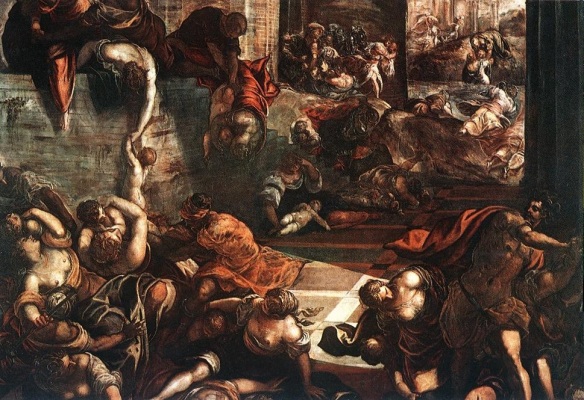We really must understand that the lust for affluence in contemporary society is psychotic. It is psychotic because it has completely lost touch with reality. We crave things we neither need nor enjoy. ‘We buy things we do not want to impress people we do not like.’ …It is time to awaken to the fact that conformity to a sick society is to be sick.-
Richard Foster
Much has been made of the theft of the Americas from the native peoples (theft is a gross understatement, and nothing that follows is an attempt to debunk the wrong the Native Americans have suffered.) I had a history teacher who once pointed out that the Island of Manhattan was sold to Dutch colonists. The value of the sale was low (60 Gilders or so, of beads, fish hooks and other “trinkets”). Yet the tribe believed that they were getting an excellent deal. Why? They knew what these white men were apparently ignorant of: No one can own land. Land is not a possession to be bought or sold, it is on loan from the Great Spirit. So this native people was happy to accept free trinkets in an impossible exchange. Likely they believed the Dutch would learn the valuable lesson that “a fool and his money are soon parted.”
The vast majority of Americans have repented of the violence, economic and otherwise, done to “Indians” yet not of the folly of ownership. Significantly, the second paragraph of the Declaration of Independence originally told us we are endowed with “the inalienable right(s)… Life Liberty and the pursuit of Property.” The lattermost was changed in order to reflect the discomfort of the author with the institution of slavery; yet ever since then, we have equated happiness with property. For every time you heard your grandmother say, “money can’t buy happiness, it can’t buy love” you heard a thousandfold “acquire this, it will make you happy.”
Some don’t see any problem with this and would happily say that “he who dies with the most toys wins.” Yet I do believe that this is psychotic. This sort of materialism represents such a severe mental emotional disorder that contact has indeed been lost with reality. Life is not evaluated the same way Wall Street is, the outcome is not determined like the X Games. He who has the most money, toys or adventures is not the winner. Life is not winnable. If it were, most of us should stop playing the game. Further, and perhaps most revealing of the Western-ness of this idea, those in the two-thirds world have a meaningless existence almost by definition.
My church has a tradition of beginning the year with prayer and fasting. These disciplines are growing less common in the world. I am sure there are many reasons for the decline i.e. they are difficult, they are strange, they are generally immaterial, rarely yielding tangible results etc. Yet they carry an old idea: silence and experience of poverty can often be the means through which the Divine reveals Itself.
“Life, Liberty and the pursuit of Happiness” is a sentiment both synonymous with and antithetical to the Gospel of Jesus Christ. They are equivalent, in that, the one who finds Jesus, finds all these things. Even those who die in Christ are better off than those alive without him. So, Life, in a sense, is not altogether important for the Christian. Liberty- indeed the only real liberty- is something that people who know Jesus will know. Yet Christians will find themselves commanded to do or avoid things that many are free to do. Finally, “happiness” tends to be synonymous with “stuff” and our culture certainly believes in the pursuit of happiness. In our time it may be strange to be a praying woman or worse yet a man of faith, but fasting is beyond comprehension. Fasting is a spiritual discipline; it is something we enter into that has no practical value. It will not make God answer your prayers any quicker. It will not make you a stronger or better Christian. In fact, if you enter into fasting in order to be more impressive, you have already failed, and should go no further (Lk 18:10-14). Perhaps worst of all, fasting will cost you something. Yet, when we temporarily abandon our pursuit of happiness, we are able to finally pursue Jesus. It may be impractical, it may leave you hungry, but chasing after the heart of the Lord is infinitely satisfying. May you pursue Jesus this year; He is already pursuing you!
**it should be noted that I was asked to write the final paragraph of this post for Living Streams Church








